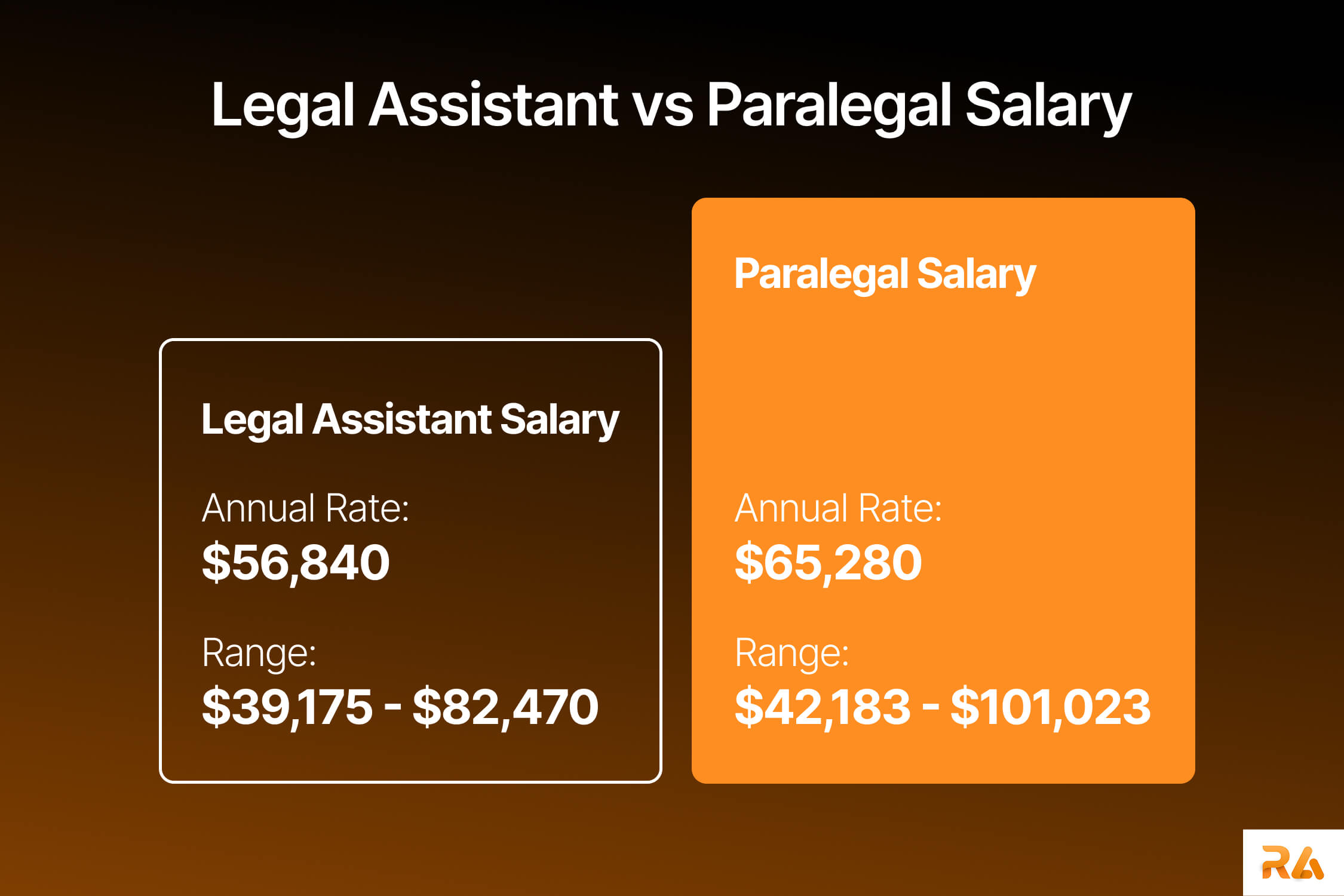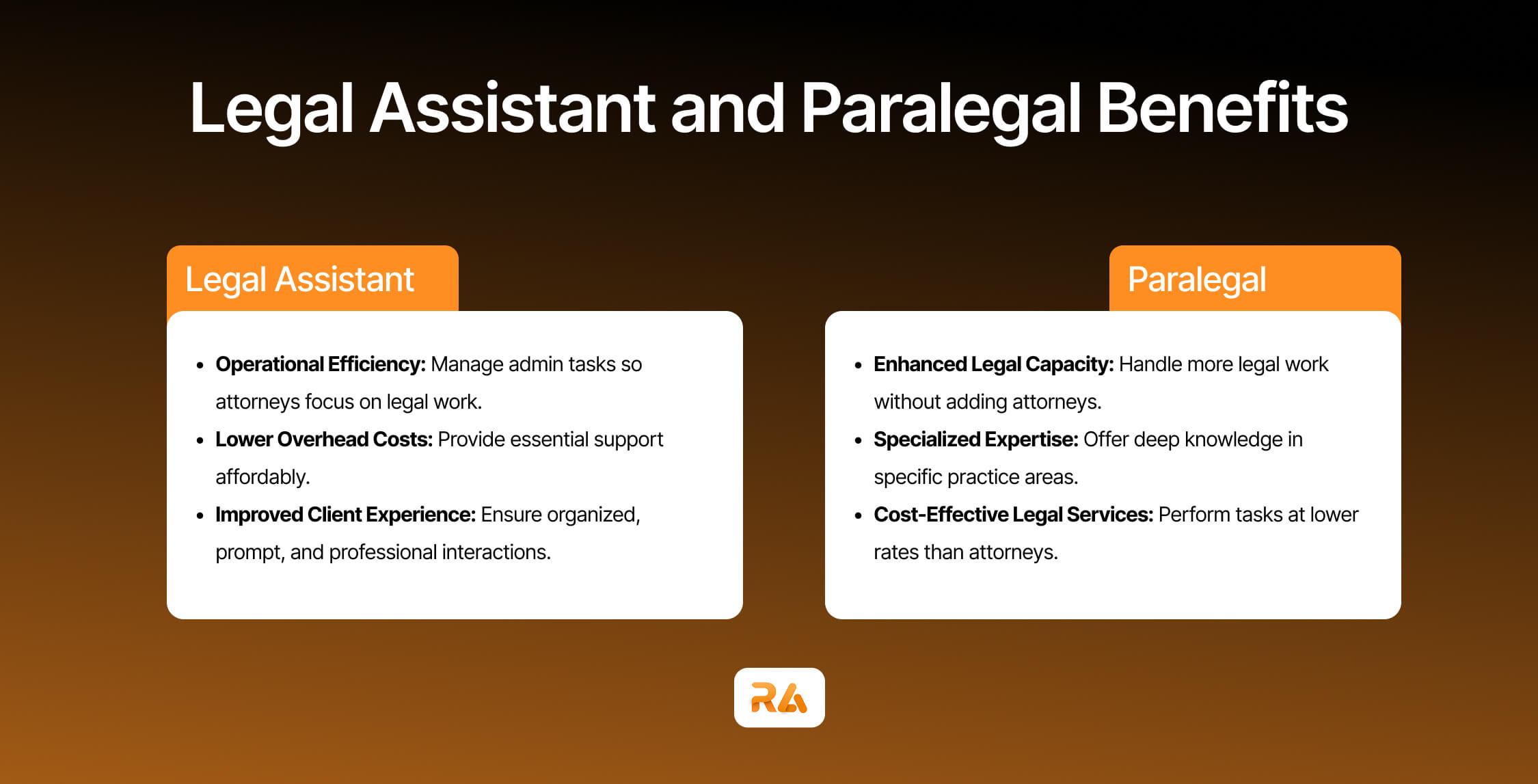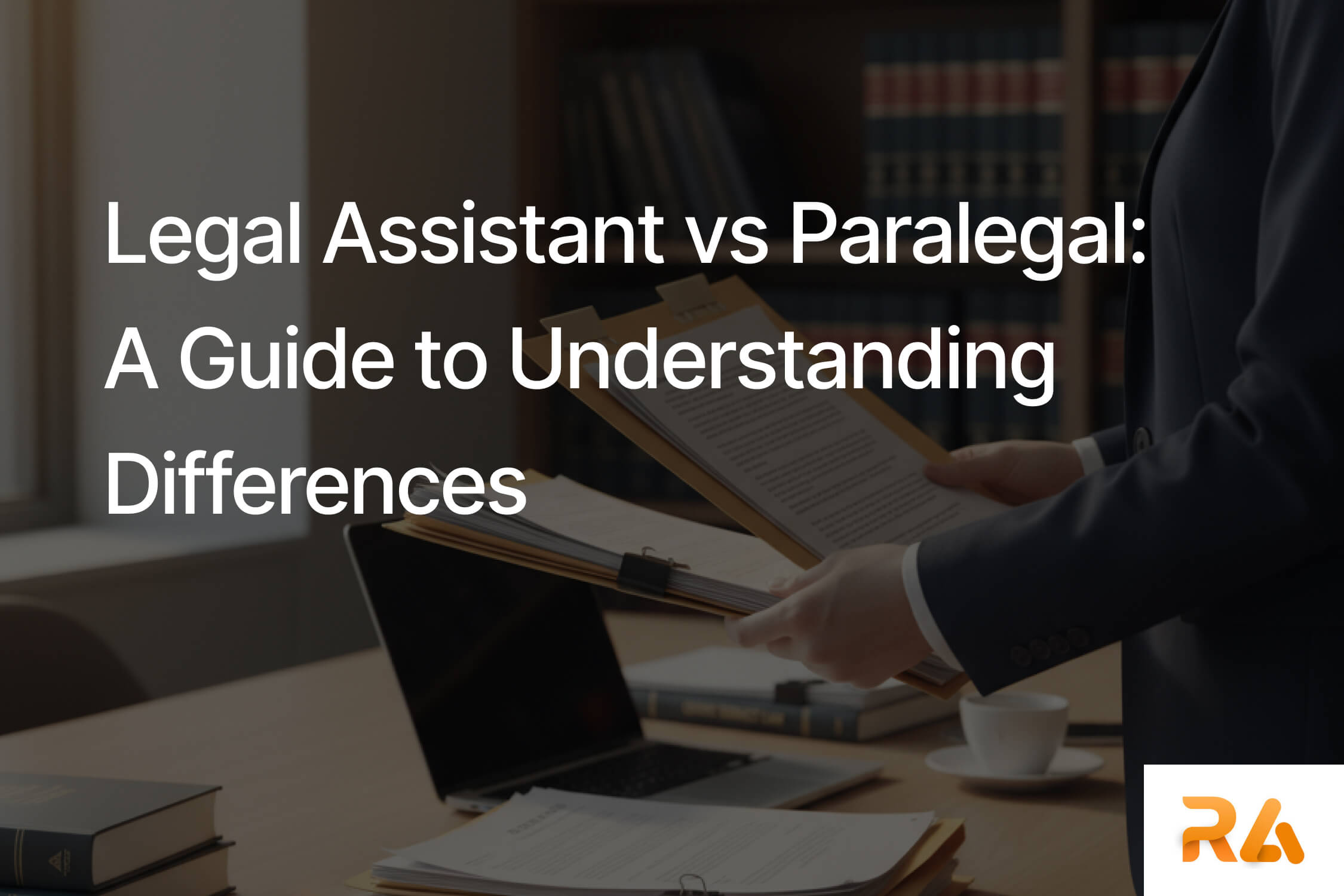Hiring the wrong legal support is a costly mistake that leads to missed deadlines, client dissatisfaction, and wasted salary. With approximately 39,300 openings for paralegals and legal assistants emerging annually, the risk of a bad hire is high. These roles are not interchangeable, and confusing them can stall your firm's growth and profitability. Understanding the distinction is your first defense against a hiring error that drains your resources and undermines your practice.
What is a Legal Assistant?
A legal assistant is a professional who provides administrative and clerical support within a legal environment. These individuals ensure the smooth daily operation of a law office by managing schedules, organizing documents, and handling client communications. While legal assistants may occasionally assist with basic legal tasks, their primary function centers on administrative duties.
Legal assistants typically focus on office management responsibilities, including maintaining filing systems, preparing correspondence, managing client billing, and coordinating meetings between attorneys, clients, and witnesses. Their work keeps the law office running efficiently, allowing attorneys to concentrate on substantive legal matters without administrative interruptions.
What is a Paralegal?
A paralegal is a legally trained professional who performs substantive legal work under attorney supervision. These professionals engage in tasks that directly support case preparation and legal strategy. Paralegals conduct legal research, draft pleadings and motions, prepare discovery documents, and assist with trial preparation.
The American Bar Association defines a paralegal as someone qualified by education, training, or work experience who performs specifically delegated substantive legal work for which a lawyer is responsible. Unlike legal assistants, paralegals work closely with the legal aspects of cases, though they cannot provide legal advice or represent clients in court.
Legal Assistant vs. Paralegal Education
Legal assistants typically require a high school diploma or equivalent for entry-level positions, with some employers preferring an associate’s degree in business administration or a related field. Their coursework often emphasizes administrative procedures, legal terminology, document preparation, and client communication.
Paralegals generally require more specialized legal education, often earning an associate’s or a bachelor’s degree in paralegal studies. Many also pursue post-baccalaureate certificates or certifications from accredited paralegal programs, such as those approved by the American Bar Association. Their coursework emphasizes legal research, writing, ethics, and substantive areas of law.
While both roles provide essential legal support, paralegal education involves deeper training in legal analysis and procedures, preparing them to perform substantive legal work under attorney supervision. Legal assistant programs, on the other hand, emphasize administrative and clerical skills that support overall law office operations.
Key Differences in Responsibilities
Understanding the distinct duties of a paralegal versus a legal assistant is crucial for effective law firm staffing. While a legal assistant focuses on the administrative and operations support, a paralegal performs substantive legal work under attorney supervision.
The table below clarifies this division of labor to help you make an informed hiring decision.
Salary and Earning Potential Compared

The difference between paralegal and legal assistant salaries shows that paralegals typically command higher salary due to their specialized training and greater legal responsibilities.
According to the latest data from Indeed, the average annual salary for a paralegal is $65,280 per year, while legal assistants earn $56,840 per year. This pay gap reflects the additional expertise and substantive work expected from paralegals.
The key factors influencing a legal assistant’s salary include the nature of the role, education, and specialized certifications or skills, all of which can increase earning potential. In contrast, paralegal salaries tend to be influenced by specialization and advanced certifications, with the highest compensation typically found in federal government and corporate roles.
How Responsibilities and Client Roles Differ
The decision to hire a paralegal or legal assistant directly impacts your operational efficiency and bottom line. Understanding the difference in their responsibilities and client roles is essential for building a high-performing legal team that aligns with your firm's specific needs.
Scope of Work
- Legal assistant: Focuses on administrative support, including managing operations, coordinating schedules, maintaining files, and processing correspondence.
- Paralegal: Performs substantive legal work, such as legal research, drafting documents, case analysis, and trial preparation.
Client Interaction
- Legal assistant: Handles transactional client interactions, including scheduling, general inquiries, and initial client intake.
- Paralegal: Engages on substantive case matters, such as explaining legal documents, gathering detailed information, and providing procedural updates.
Knowing these distinctions ensures you hire the right legal support professional to fill your specific workflow gaps. As your law firm staffing partner, we provide pre-vetted, paralegals and legal assistants, giving you the precise expertise to scale your practice efficiently and cost-effectively.
How Each Role Benefits Your Firm

Understanding the advantages each role brings helps firms optimize their staffing strategy.
Legal Assistant Benefits
- Operational efficiency. Legal assistants handle time-consuming administrative tasks, freeing attorneys and paralegals to focus on revenue-generating legal work.
- Lower overhead costs. With less stringent educational requirements and lower salary expectations, legal assistants provide essential support at a more affordable rate than paralegals.
- Improved client experience. Dedicated administrative support ensures prompt communication, organized case management, and professional client interactions from first contact through case completion.
Paralegal Benefits
- Enhanced legal capacity. Paralegals extend a firm's ability to handle substantive legal work without increasing attorney headcount, directly improving billable efficiency and profitability.
- Specialized expertise. Many paralegals develop deep knowledge in specific practice areas such as litigation, intellectual property, or corporate law, becoming invaluable resources for complex matters.
- Cost-effective legal services. Firms can delegate appropriate legal tasks to paralegals at lower billing rates than attorney rates, providing clients with quality service at reduced costs while maintaining healthy profit margins.
Which Role Is Right for Your Firm?
The best hire is the one that solves your most pressing problems. Identify whether you're struggling with legal capacity or administrative overload, and hire accordingly.
Hire a Legal Assistant to Fix Operational Chaos
A legal assistant eliminates administrative burdens, ensuring smooth daily operations.
- When: Administrative tasks like scheduling, client calls, and disorganized files consume billable time.
- Ideal for: Smaller firms or solo practitioners needing to streamline operations cost-effectively.
Hire a Paralegal to Expand Legal Capacity
A paralegal handles substantive legal work, freeing attorneys for high-value strategy.
- When: Attorneys are bogged down in tasks like drafting pleadings, legal research, or contract prep.
- Ideal for: Litigation-heavy firms, rapid growth phases, or specialized practice areas.
Hire Both To Build a High Performance Practice
Maximize your firm's productivity and profitability by employing both roles strategically.
- When: Your firm is experiencing rapid growth, handling complex litigation, or managing high-volume caseloads where both legal and administrative systems are straining simultaneously.
- Ideal for: Mid-to-large sized firms scaling their operations and litigation-focused practices with intensive discovery and trial prep
When building your legal team, consider leveraging U.S.-law-experienced remote legal professionals. Pre-vetted talent pools of legal-trained virtual paralegals and legal assistants offer law firms access to qualified professionals without traditional overhead costs. Remote staffing solutions provide flexibility, cost savings, and access to specialized expertise that might not be available locally.
Final Notes
Legal assistants and paralegals play an important role in the legal profession, providing support that helps law firms, corporate legal departments, and government agencies operate effectively. Their responsibilities, training, and career paths differ, reflecting the variety of roles within the legal field. By handling administrative and substantive tasks, they allow attorneys to focus on delivering legal services efficiently.
As the legal field continues to evolve, the need for skilled legal assistants and paralegals remains strong, creating opportunities for those interested in these careers. Understanding the differences and similarities between these roles can help aspiring professionals make informed career choices and allow legal teams to use each role effectively. In any setting, legal assistants and paralegals contribute to the smooth functioning and success of the legal profession.
Find Your Legal Assistant or Paralegal in Days, Not Months
Skip the lengthy hiring process. Remote Attorneys gives you access to pre-vetted pool of U.S. law-experienced professionals who are ready to work. Our platform makes it easy to find, onboard, and manage remote legal assistants and paralegals who fit your firm's exact needs.
Build your ideal team faster and more flexibly, without the overhead of traditional hiring. Schedule a consultation and discover how pre-vetted remote talent can transform your practice.

Frequently Asked Questions
Are legal assistants and paralegals the same thing?
No. While both work in legal environments, paralegals perform substantive legal work requiring specialized education, while legal assistants focus primarily on administrative and clerical duties. The American Bar Association removed "legal assistant" from its paralegal definition in 1997 to reflect these distinct responsibilities.
Can a legal assistant become a paralegal?
Yes. Many legal assistants pursue paralegal education while working in law firms. Gaining legal knowledge through certificate programs or associate degrees, combined with practical experience, can facilitate the transition from legal assistant to paralegal.
I'm a solo practitioner. Do I need to hire both at once?
Not necessarily. Firm needs vary based on size, practice area, and operational structure. Small firms may require only administrative support, while larger firms benefit from having both roles to maximize efficiency across legal and administrative functions. Evaluate your firm's specific needs to determine the optimal staffing model.


.webp)

.webp)